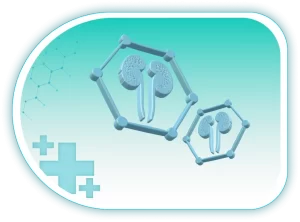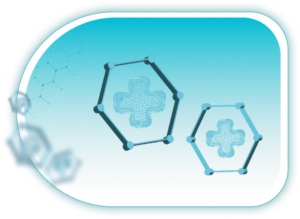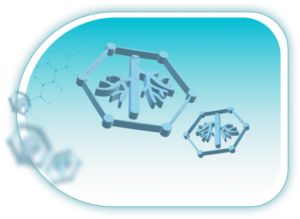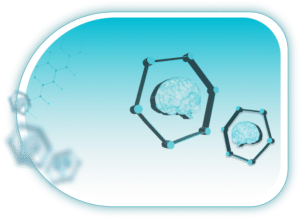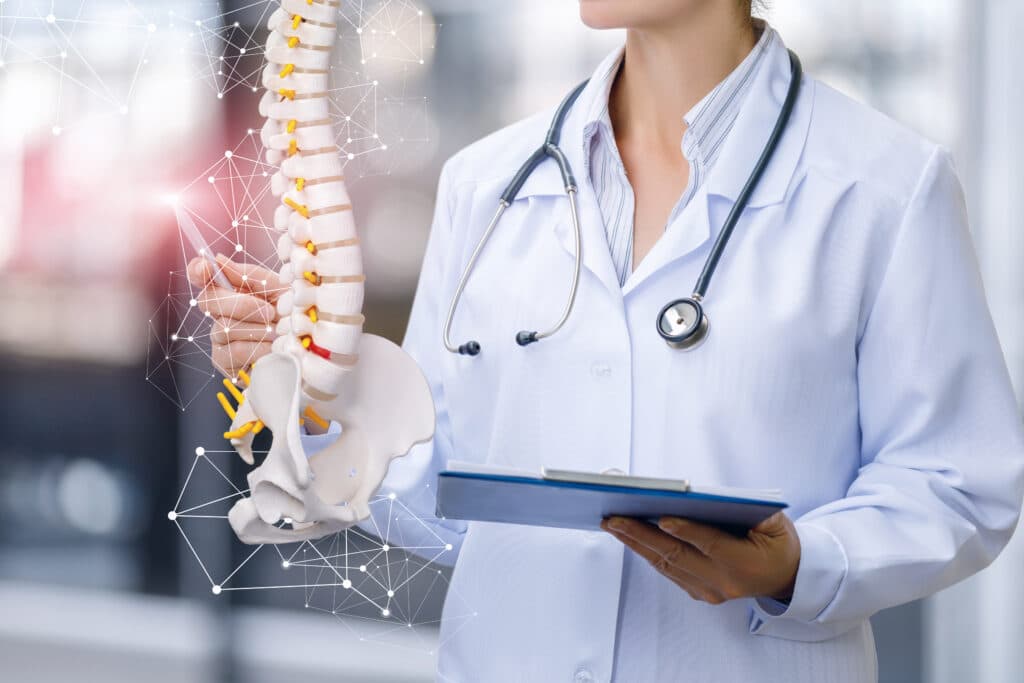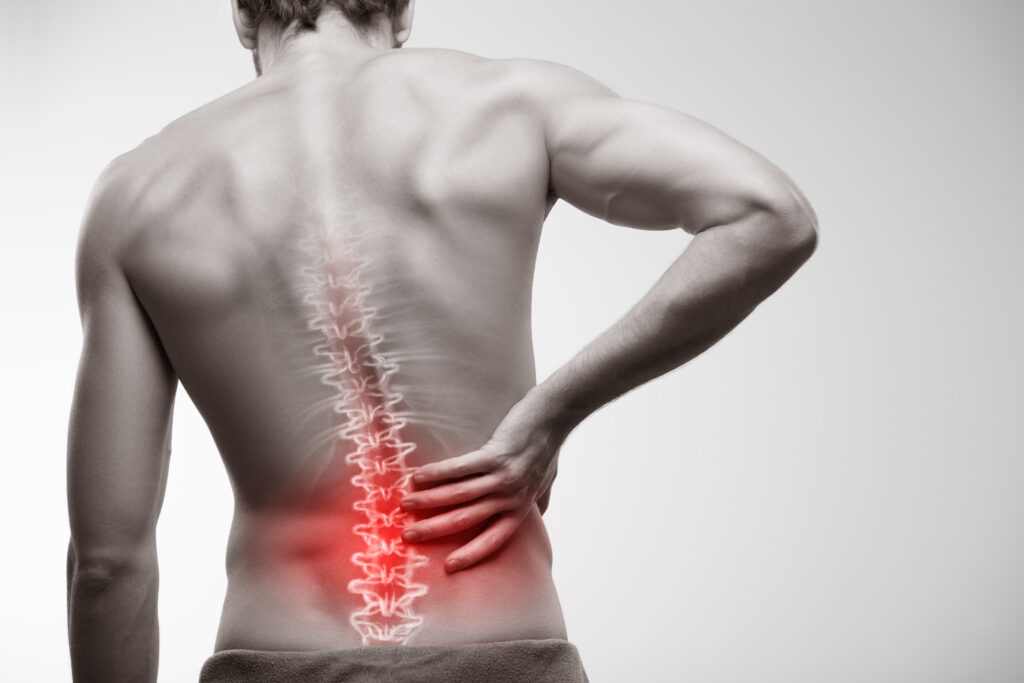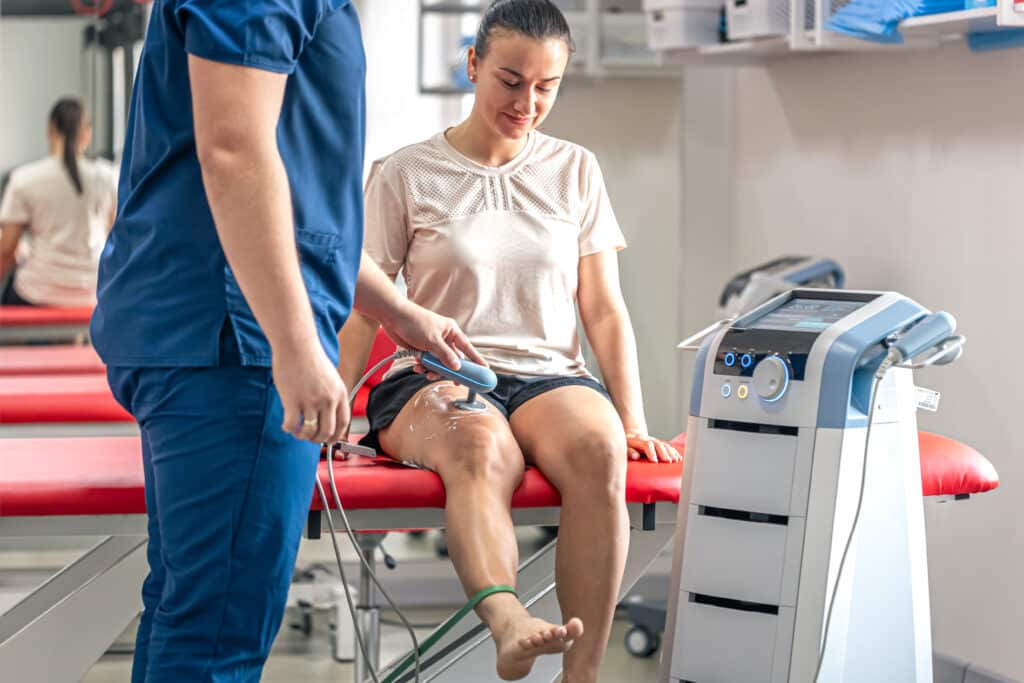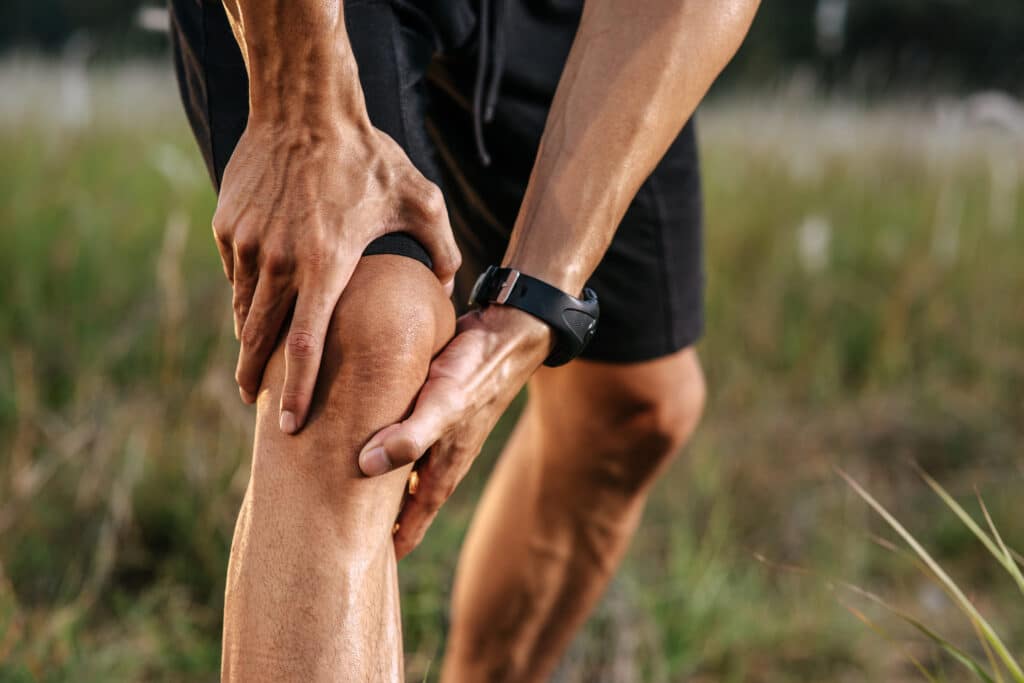Back pain is a common ailment that affects people of all ages and backgrounds. It can range from mild discomfort to debilitating agony, significantly impacting one’s quality of life. In this comprehensive blog, we will delve into the world of back pain, exploring its diverse causes, the diagnostic process, and non-surgical solutions for relief. Whether you’re someone seeking answers for your own back pain or simply interested in understanding this prevalent issue, join us on this journey to unravel the complexities of back pain and discover effective non-surgical approaches to alleviate it.
Understanding Back Pain
Back pain is a multifaceted condition that can originate from various structures in the spine, including muscles, ligaments, discs, and nerves. Common types of back pain include:
- Muscle Strain: Overexertion or improper lifting techniques can lead to strained muscles in the back.
- Herniated Discs: When the soft inner core of a spinal disc protrudes and irritates nearby nerves.
- Degenerative Disc Disease: Wear and tear on the discs between vertebrae can cause pain and reduced mobility.
- Spinal Stenosis: Narrowing of the spinal canal, often due to aging, can compress nerves and lead to pain.
- Sciatica: Compression of the sciatic nerve, causing pain that radiates down the leg.
Causes of Back Pain
Back pain can have a myriad of causes, including:
- Poor Posture: Slouching or sitting for extended periods can strain the back muscles and lead to pain.
- Lifestyle Factors: Obesity, smoking, and a sedentary lifestyle can increase the risk of back pain.
- Injuries: Accidents, falls, or sports-related injuries can damage the spine and surrounding tissues.
- Age-Related Changes: As we age, the spine undergoes natural wear and tear, increasing the likelihood of pain.
- Medical Conditions: Conditions like osteoarthritis, scoliosis, and fibromyalgia can contribute to back pain.
Diagnostic Process
Accurate diagnosis is essential for effective treatment. Common diagnostic methods for back pain include:
- Medical History: Your doctor will inquire about your symptoms, lifestyle, and any prior injuries.
- Physical Examination: A thorough physical exam assesses your range of motion, strength, and reflexes.
- Imaging: X-rays, MRI scans, and CT scans can provide detailed views of the spine and help identify structural issues.
- Nerve Studies: Electromyography (EMG) and nerve conduction studies can pinpoint nerve-related problems.
Non-Surgical Treatment Options
Many individuals with back pain can find relief through non-surgical approaches. These options include:
- Physical Therapy: Tailored exercises and stretches can strengthen the back, improve posture, and reduce pain.
- Medications: Over-the-counter pain relievers, muscle relaxants, and anti-inflammatory drugs can help manage pain and inflammation.
- Heat and Cold Therapy: Applying heat or cold packs can alleviate muscle spasms and reduce pain.
- Chiropractic Care: Manual adjustments and spinal manipulations by chiropractors can provide relief for some back pain conditions.
- Acupuncture: This traditional therapy involves inserting thin needles into specific points on the body to reduce pain and promote healing.
- Epidural Steroid Injections: Injections of anti-inflammatory medication into the epidural space can relieve nerve-related back pain.
Lifestyle Modifications
Making certain lifestyle changes can help prevent and manage back pain:
- Exercise: Regular physical activity, including low-impact exercises like swimming or walking, can strengthen the back and improve flexibility.
- Ergonomics: Proper ergonomics at work and home can reduce strain on the back. Ensure your workspace and furniture support good posture.
- Healthy Weight Management: Maintaining a healthy weight reduces the load on the spine and can alleviate back pain.
- Stress Reduction: Stress can exacerbate back pain. Techniques like yoga, meditation, and deep breathing can help manage stress levels.
Complementary Therapies
Several complementary therapies can complement traditional treatments for back pain:
- Massage Therapy: Skilled massage therapists can target tense muscles and promote relaxation.
- Herbal Remedies: Some herbs, such as turmeric and ginger, have anti-inflammatory properties that may help reduce pain.
- Mind-Body Techniques: Practices like mindfulness and guided imagery can improve pain management and overall well-being.
Spine Health Maintenance
Maintaining good spine health is essential not only for managing existing back pain but also for preventing future issues. Here are some additional strategies to consider:
- Core Strengthening: A strong core helps support your spine and maintain proper alignment. Incorporate exercises that target your abdominal and back muscles into your fitness routine.
- Proper Lifting Techniques: Whether you’re lifting weights at the gym or picking up a heavy object at home, always use your legs, not your back, to lift. Bend your knees and keep your back straight to reduce the risk of strain.
- Regular Stretching: Incorporate daily stretching into your routine to maintain flexibility and prevent muscle imbalances. Stretching can help relieve tension and reduce the risk of muscle-related back pain.
- Good Sleep Habits: Invest in a supportive mattress and pillow that promote proper spinal alignment while sleeping. A comfortable sleep position can also make a significant difference in reducing nighttime discomfort.
- Footwear: Wearing supportive and well-fitted shoes can help maintain proper posture and alignment, reducing the strain on your back.
Seeking Professional Guidance
While non-surgical solutions can be effective for managing many cases of back pain, it’s essential to consult with healthcare professionals for a personalized treatment plan. These professionals may include:
- Primary Care Physicians: Your primary care doctor can provide initial evaluation and referrals to specialists if needed.
- Physical Therapists: Physical therapists are experts in developing tailored exercise and rehabilitation programs to address back pain.
- Orthopaedic Specialists: Orthopaedic doctors specialize in musculoskeletal conditions and can provide expert guidance on back pain management.
- Pain Management Specialists: These specialists can offer advanced interventions such as nerve blocks and other pain-relief techniques.
- Chiropractors: Chiropractors focus on spinal manipulation and adjustments to alleviate pain and improve spinal function.
- Acupuncturists: Acupuncture practitioners use traditional techniques to target pain relief and promote healing.
Back pain is a widespread condition that affects millions, but it doesn’t have to control your life. By understanding its causes, seeking proper diagnosis, and exploring non-surgical solutions, individuals can take control of their back pain journey. The array of treatments, lifestyle modifications, and complementary therapies available provides hope for managing and alleviating back pain effectively. Remember that a proactive approach to your back health, including regular exercise, proper posture, and stress management, can go a long way in preventing future episodes of pain and helping you maintain a healthy and active lifestyle.

